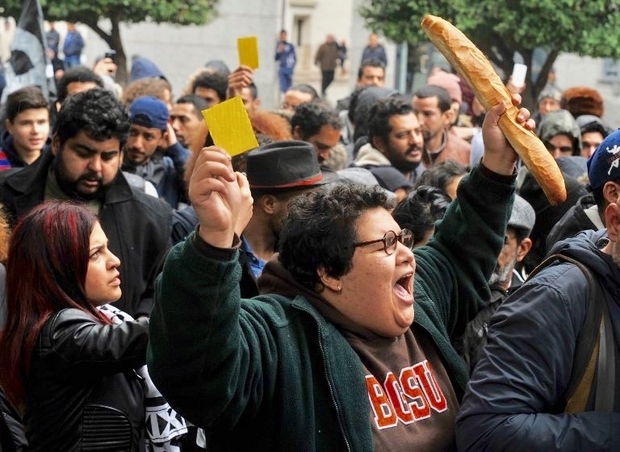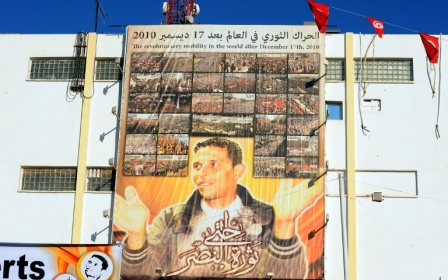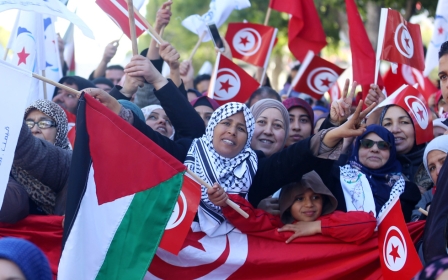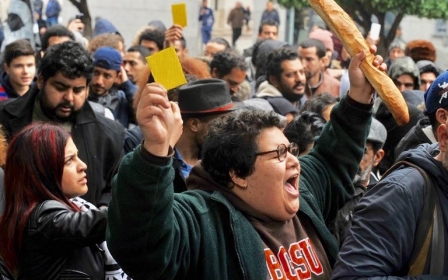'Tunisians are tired': Will long-awaited municipal elections make a difference?
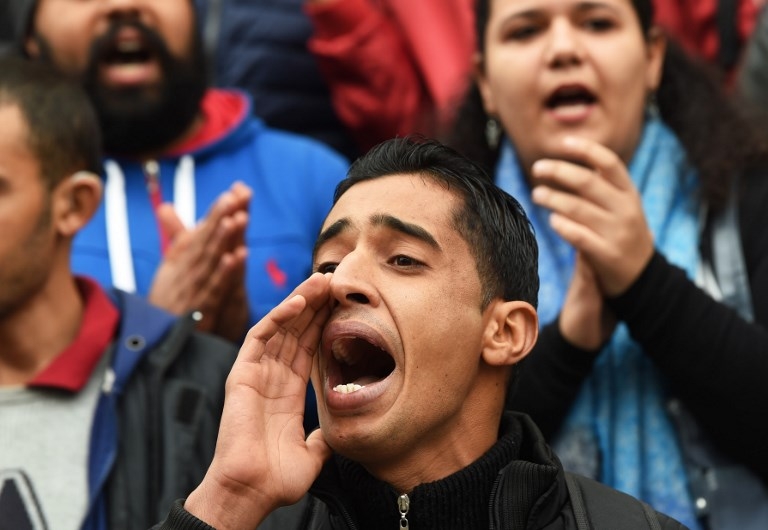
Seven years after their uprisings, Tunisians will head to the polls on Sunday for the country’s first municipal elections since long-time leader Zine El-Abdine Ben Ali was unseated.
The vote will decentralise power in the country which, under Ben Ali’s hyper-centralised rule, suffered from a resource imbalance between the coast and inner regions, like Sidi Bouzid where the protests first started.
After years of delays, this was becoming a real failure in Tunisia's transition
- Riccardo Fabiani, Middle East analyst
From pot holes to repainting, local decisions will be up to regional authorities voted into office who will take over from special delegations put in place after his overthrow which often failed to satisfy residents.
“Tunisians have been expecting things to improve, better streets, lower prices…not things you get from other types of elections. That’s what this one is about,” Mariem Masmoudi, a Tunisian academic and activist involved in the passage of Tunisia's constitution, told Middle East Eye.
Yet while Masmoudi and other observers acknowledge the dire need and historical significance of this vote, they worry that many Tunisians, facing high inflation and unemployment, are so disillusioned, the election may do very little to relieve their frustration.
“It’s really difficult for a person who has been struggling with everyday life to see a bigger picture," Masmoudi said.
Filling the gap?
Around five million voters are eligible to participate in the vote which comes as a result of the country’s constitution, adopted in January 2014, which empowers local authorities.
Over the past two years, authorities postponed the election several times fuelling concerns that figures from previous governments were attempting to stall advances and allowing problems to fester.
“After years of delays, this was becoming a real failure in Tunisia's transition,” Riccardo Fabiani, a former senior Middle East analyst at Eurasia Group, told MEE.
“Austerity, instability and corruption - just to name three factors - have really created a gap between voters and their representatives.”
These elections will set the scene for the country’s crucial votes for president and parliament to be held next year, with voters deciding between more than 2,000 electoral lists. The majority – and the only ones with lists in all cities - are from the two parties in power, the ruling party, Nidaa Tounes, and Ennahda.
The Independent High Authority for Elections (ISIE) put in place certain criteria that lists must respect, including gender parity, inclusivity of at least one disabled candidate and at least three candidates under the age of 35.
Municipalities are about improving people’s lives and local communities, and hopefully, we are going to emerge with local councils for the first time
- Mariem Masmoudi, Tunisian academic
Masmoudi said that parties have been trying to drive up interest in the elections by emphasising that the vote is much more about services than about partisanship – but it’s unclear whether that message will get across. Many observers anticipate high abstention rates.
“Parties have been trying to drive home the idea that … we want to fix up streets and work on parks and improve all kinds of services that will benefit citizens directly,” she said.
“Ideally people could see past the stresses of everyday life and see the importance of these votes… but don’t think we should expect that.”
Fabiani agreed that many voters are “definitely disenchanted”.
“Many of them just don’t think this [election] will change anything and are eager to see results seven years after the revolution,” he said.
'Still writing our story'
But Tarek Toukabri, the founder of Tunis-based NGO Hoomitna which focuses on local and regional issues, told MEE that young Tunisians haven’t given up yet. Half of the candidates running in the election are under 35.
The youth believe in change
- Tarek Toukabri, founder of NGO Hoomitna
“Young people in Tunisia are somewhat positive about the elections. The youth believe in change,” Toukabri said.
But one problem that has come up for young people, he said, is that the political parties are "not inclusive", leaving little space for discussion and debate.
"They don’t accept people who don’t believe the same as them," he said.
While they support their own parties and lists, Toukabri said that many are linked by a shared desire for change.
But there are also some young people, seven years after the hope of the uprisings, who reject the entire system. “They do not trust the government… parties today are seen as enemies of the youth,” he said.
Tunisia has often been painted as the success story of the so-called Arab Spring, however, many in the country say they’re lives haven’t improved since the revolution.
“Things are going to take longer than expected,” Masmoudi said. “More and more people in political and civil society are talking about needing time and thinking more strategically.”
“We are still writing our story, and we still don’t fully understand it and we don’t know if it will succeed,”she added. “Municipalities are about improving people’s lives and local communities, and hopefully, we are going to emerge with local councils for the first time.”
“Hopefully this will serve as a reason for them to have hope in politics again.”
Middle East Eye propose une couverture et une analyse indépendantes et incomparables du Moyen-Orient, de l’Afrique du Nord et d’autres régions du monde. Pour en savoir plus sur la reprise de ce contenu et les frais qui s’appliquent, veuillez remplir ce formulaire [en anglais]. Pour en savoir plus sur MEE, cliquez ici [en anglais].


